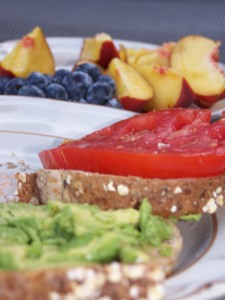Antioxidants are molecules that prevent damage and free radical formation in the body. Free radicals are formed when oxidation occurs (transfer of hydrogen atoms to another molecule creating a cascade of molecular reactions). If excess oxidation and free radical production occurs in the body’s cells, aging and cell death occur more rapidly. Antioxidants are necessary to keep this process under control and clear out free radicals.
The roles of antioxidants include: supporting cardiovascular function, repairing muscle tissue, preventing cancer cell growth, encouraging proper detoxification, and supporting nervous system and brain function.
Important antioxidants for the body include:
- Vitamin C
- Resveratrol
- Alpha lipoic acid
- Curcumin
Vitamin C is one of the most widely used antioxidants in the body. The immune system, adrenal glands, ovaries, and cellular metabolism processes require vitamin C. A recent study of elderly women in Japan suggested higher plasma levels of vitamin C were associated with improved muscle strength and physical performance. Excellent food sources are: strawberries, kiwis, cherries, bell peppers, Brussels sprouts, dark green leafy vegetables, and herbs (thyme, cilantro, parsley, basil).

Resveratrol is a natural protective phenol produced by plants when they are under stress. Studies have suggested it prolongs life, improves metabolism and exercise capacity, and helps fight insulin resistance. Resveratrol is found in grape skins (and therefore wine), dark berries and peanuts.
Alpha lipoic acid is a fatty acid used in the body to produce energy. It’s antioxidant functions are in the brain and nervous system as well as to help regenerate an endogenous antioxidant of the body, glutathione. Brussels sprouts, brewer’s yeast, dark green leafy vegetables, and organ meats are sources of alpha lipoic acid.
Curcumin is the antioxidant from tumeric. It’s roles include the improvement of glutathione production in the body, particularly the liver, decreasing inflammation, and inhibiting tumour formation. Other than tumeric, good quality supplementation is the best source of curcumin.
In general adding more green leafy vegetables, cruciferous vegetables (cabbage vegetables – broccoli, Brussels sprouts, cabbage), and bright or dark coloured berries and fruits is an excellent way to improve antioxidant activity in the body and slow the aging process.



